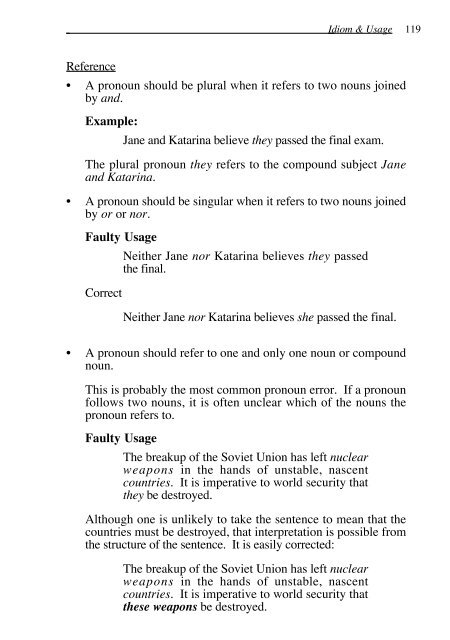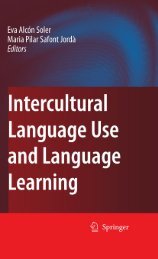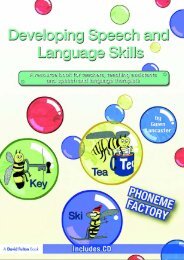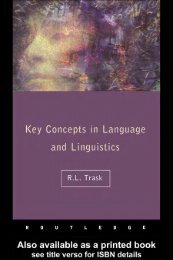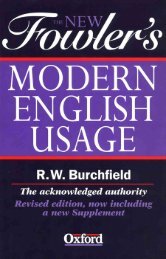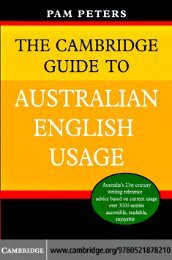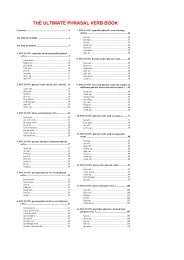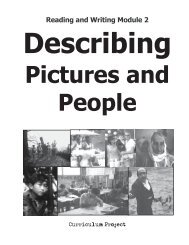Vocabulary 4000 - Noel's ESL eBook Library
Vocabulary 4000 - Noel's ESL eBook Library
Vocabulary 4000 - Noel's ESL eBook Library
Create successful ePaper yourself
Turn your PDF publications into a flip-book with our unique Google optimized e-Paper software.
Idiom & Usage 119<br />
Reference<br />
• A pronoun should be plural when it refers to two nouns joined<br />
by and.<br />
Example:<br />
Jane and Katarina believe they passed the final exam.<br />
The plural pronoun they refers to the compound subject Jane<br />
and Katarina.<br />
• A pronoun should be singular when it refers to two nouns joined<br />
by or or nor.<br />
Faulty Usage<br />
Neither Jane nor Katarina believes they passed<br />
the final.<br />
Correct<br />
Neither Jane nor Katarina believes she passed the final.<br />
• A pronoun should refer to one and only one noun or compound<br />
noun.<br />
This is probably the most common pronoun error. If a pronoun<br />
follows two nouns, it is often unclear which of the nouns the<br />
pronoun refers to.<br />
Faulty Usage<br />
The breakup of the Soviet Union has left nuclear<br />
weapons in the hands of unstable, nascent<br />
countries. It is imperative to world security that<br />
they be destroyed.<br />
Although one is unlikely to take the sentence to mean that the<br />
countries must be destroyed, that interpretation is possible from<br />
the structure of the sentence. It is easily corrected:<br />
The breakup of the Soviet Union has left nuclear<br />
weapons in the hands of unstable, nascent<br />
countries. It is imperative to world security that<br />
these weapons be destroyed.


